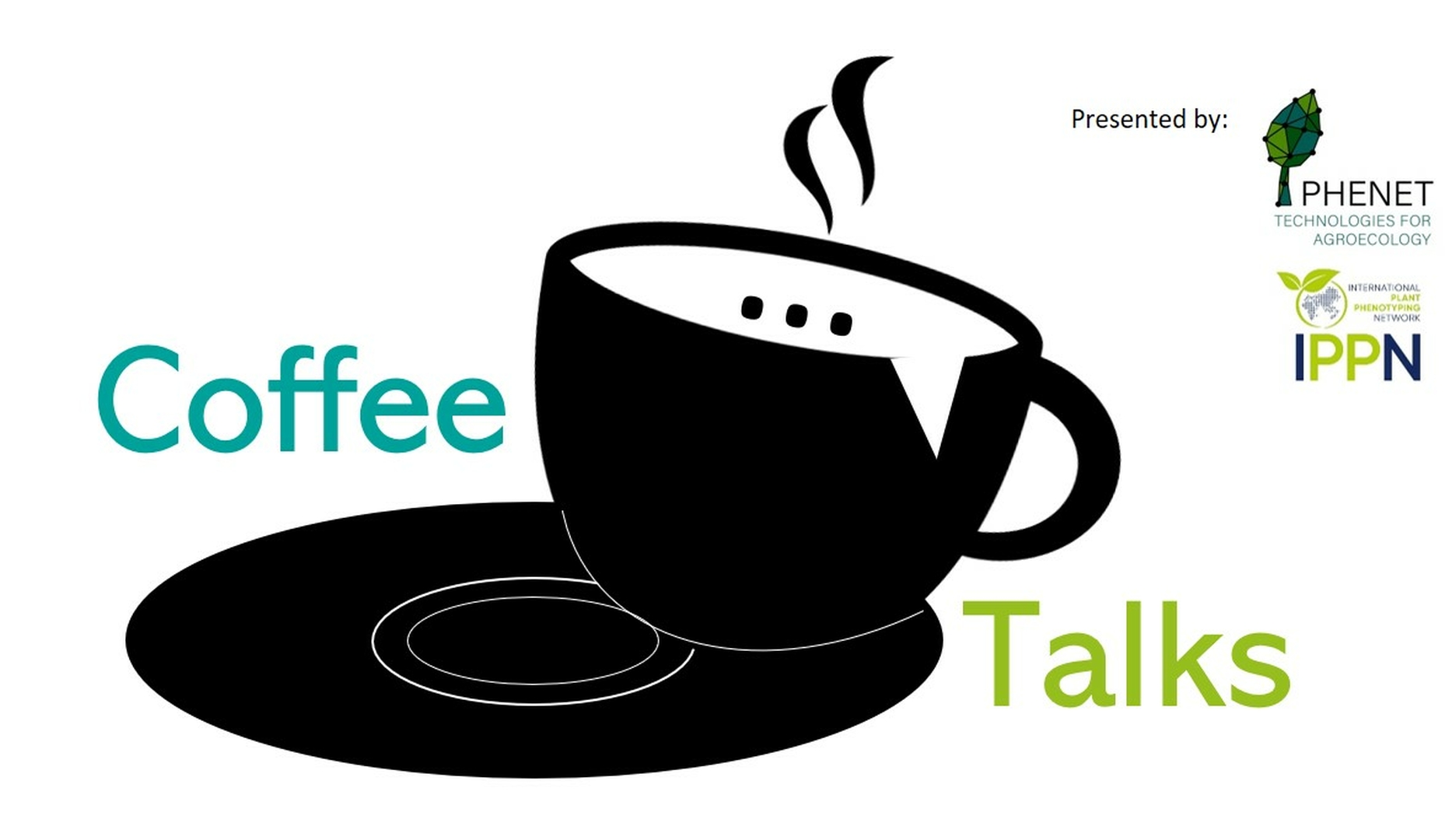Announcement of Coffee session series

Are you focusing on plant phenotyping or envirotyping topics in your research and interested in how you can benefit from research infrastructure services in that area?
The EU funded project PHENET and the International Plant Phenotyping Network (IPPN) run a series of joint FREE coffee sessions webinars, introducing you to the services from four high-class European research infrastructures:
- AnaEE-ERIC: Analysis and Experimentation on Ecosystems
- EMPHASIS: European Infrastructure for Plant Phenotyping
- eLTER: Integrated European Long-Term Ecosystem, Critical Zone and Socio-Ecological System Research Infrastructure
- ELIXIR: A distributed infrastructure on life science data
Each webinar will provide you with key insights into their activities, how you can benefit from them, how you can access them, and whom to contact in case you need further information afterwards. And of course, you will be able to ask any question during the seminar which you may have towards these organisations.
The webinars will take place to these times:
ELIXIR
24 Oct 10:00 to 10:30 CEST
online via zoom
EMPHASIS
29 Oct, 15:00 to 15:30 CET
online via zoom
AnaEE-ERIC
31 Oct 15:00 to 15:30 CET
online via zoom
eLTER
4 Nov 15:30 to 16:00 CET
online via zoom
Join us and register for these webinars via the PheNet website.
In PHENET, EMPHASIS, AnaEE, eLTER, and ELIXIR join forces to co-develop, with a diversity of innovative companies, new tools and methods – meant to contribute to new RI services – for the identification of future-proofed combinations of species, genotypes, and management practices in front of the most likely climatic scenarios across Europe. IBG-2 is responsible for coordinating the co-development of use cases on novel phenotyping and envirotyping technologies and tools, and the outreach and innovation tasks. IPPN is an association representing the major plant phenotyping centers, aiming to provide all relevant information about plant phenotyping to increase the visibility and impact of plant phenotyping and enable cooperation between different stakeholders, with the IPPN office being hosted by IBG-2.
